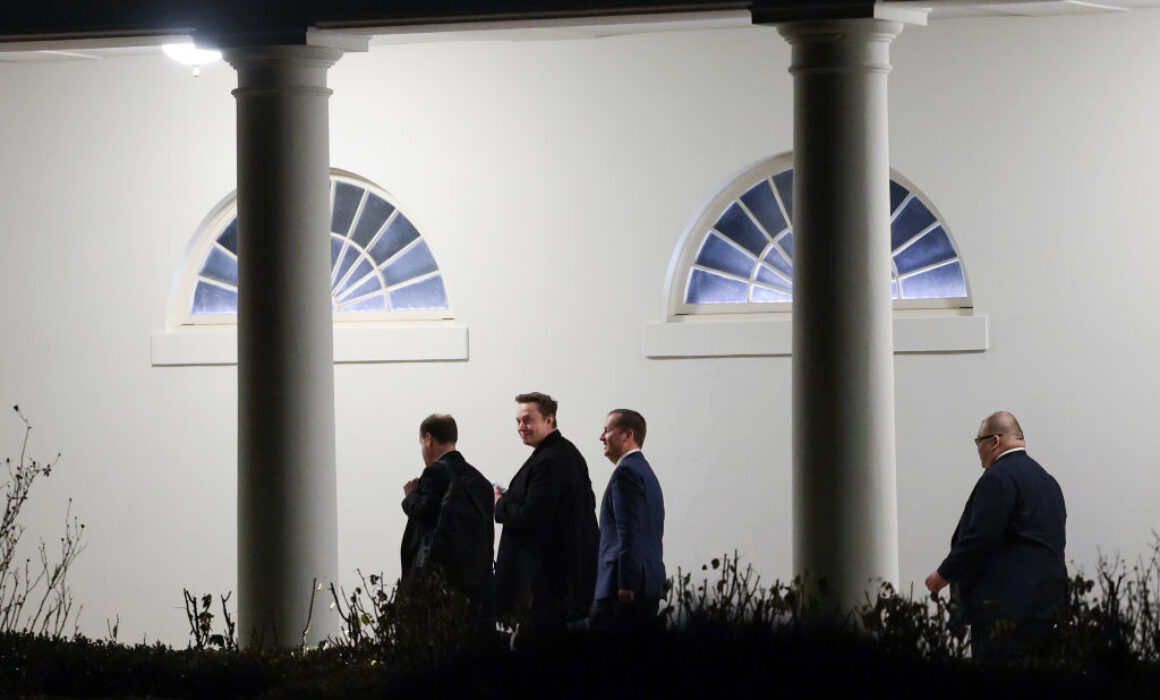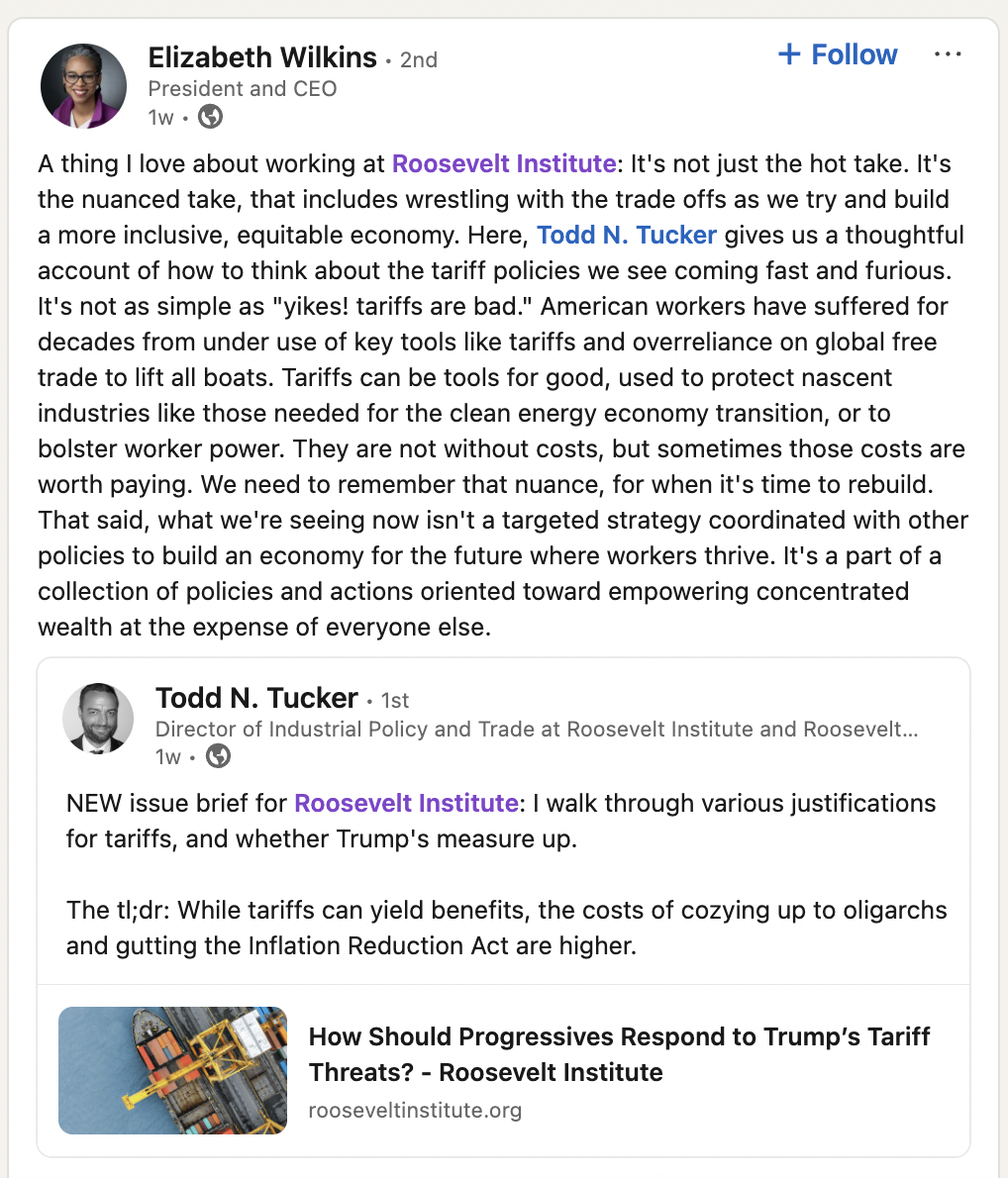Slashing Essential Services Harms Everyone
February 21, 2025
Why funding for the IRS and NIH is indispensable
The Roosevelt Rundown features our top stories of the week.

Elon Musk with Trump administration staff at the White House on February 19, 2025.
More TurboTax, Less Cancer Research
Today’s newsletter focuses on two programs that the Trump administration—by way of Elon Musk—is threatening to kneecap: Direct File from the Internal Revenue Service (IRS) and medical research grants from the National Institutes of Health (NIH).
- Direct File is the platform launched last year that allows taxpayers to prepare and submit their tax returns directly to the IRS, for free, without needing to rely on third-party tax preparers such as TurboTax and H&R Block. In response to Musk’s recent promise to “delete” the team supporting Direct File, Roosevelt’s Emily DiVito writes, “It’s reprehensible that the Trump administration seems poised to undo a program that was a huge achievement, not only for the IRS teams responsible for building the user-friendly platform quickly but also for the millions of Americans who were able to eschew paid tax preparers.”
- The NIH is the nation’s top funder of research into cancer treatments, vaccines, medications, and other lifesaving biomedical breakthroughs. The Trump administration has proposed cuts to NIH grants that would cripple research labs at universities and hospitals in every state. “Capping indirect costs at 15 percent doesn’t cut waste; it guts the research enterprise. Without operational support, universities slash programs, cut staff, and deprioritize the exploratory science that drives medical breakthroughs,” says Ali Abazeed, a former NIH public health advisor.
The attacks on these programs share several common threads: They divert money away from public initiatives that unquestionably benefit all Americans, where private-sector alternatives have proven inadequate if not outright predatory. As DiVito points out, “It follows a conservative playbook of undermining effective government programs to support their arguments that the public programs don’t work.”
The high-profile incursions into these agencies also politicize programs that had always been committed to nonpartisanship, serving all communities regardless of political leanings. According to Abazeed, “It’s the latest escalation in a decades-long ideological assault on government that has become so extreme that even funding cancer research is now collateral damage.”
Read the blog posts: “IRS’s Direct File: A Win for Taxpayers Under Threat After Tax Season” and “The Trump Administration’s NIH Cuts Will Harm Everyone. Especially People in Red States.”
What We’re Talking About
What We’re Reading
- Former Chair of the US Council of Economic Advisers Jared Bernstein laid out how Joe Biden’s economic team considered trade-offs, what they achieved, and where they could have gone further in the past four years.
- Economic Security Project Chair Chris Hughes added his thoughts on Biden’s economic legacy—“Biden-era policies represent real steps toward a strong, resilient economy, which we abandon at our own political and material peril”—calling it “a welcome sea change in thinking about how to make smart economic policy.”
- As former National Economic Council Chief Economist and Roosevelter Mike Konczal wrote this week, “What the Biden administration was trying to do was an evolution of policymaking in dialogue with changing evidence and challenges.”
- The widespread success of universal preschool offers lessons for universal childcare advocates. “In this country, public education is a right,” says childcare expert Elliot Haspel, which means that preschool programs often succeed where the childcare agenda has faltered.
- California is launching a new baby bonds program, a state-run trust fund idea originally proposed by Roosevelt Senior Fellows Darrick Hamilton and Sandy Darity to tackle the racial wealth gap.
